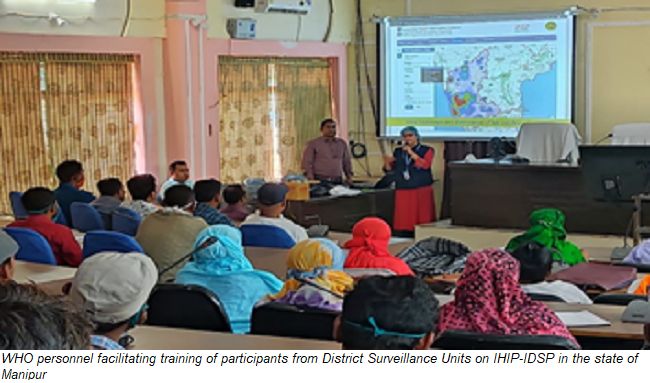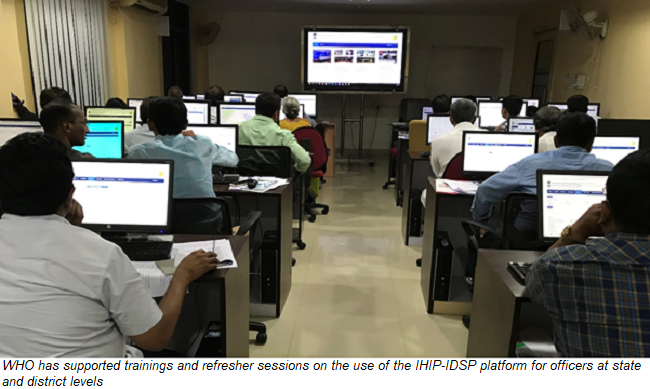The Integrated Health Information Platform (IHIP) scaled up and rolled out across all states last week to provide near-real time data to the government and public health officials to detect, monitor and respond to outbreaks of more than 30 diseases across the country.
The IHIP platform anchors the data entry and management for the country’s Integrated Disease Surveillance Programme (IDSP) to provide near-real time data to decision-makers at all levels of the government. The platform is a strategic intervention to help the government identify and address knowledge gaps that exist due to limited epidemiological analysis (scientific, systematic, and data-driven study of distribution, patterns and determinants of health and disease conditions in specified populations) available in India.
IHIP integrates health data sources from public and private sector facilities, including hospitals, laboratories, and research centres under a single operating platform. It has the capacity to exchange animal health, environmental health and climate data for national health programmes, routine surveillance data, public health threats, including disasters and mass events, among others.
“IHIP is a unique surveillance platform that leverages technology to map near-real time data for multiple disease categories. Accurate, reliable and timely information enables policymakers to make informed decisions and implement focused and evidence-based interventions, especially in a hugely populated country like India,” said Dr Harsh Vardhan, Union Minister of Health & Family Welfare at the launch of IHIP-IDSP through a virtual event on 5 April.
WHO India has supported the Government of India and various stakeholders in the development of this platform. “The IHIP launch is a historic day not only for India but also for global public health. This refined digital surveillance platform will help to provide and connect data, and enable concerted action rooted in the ‘One Health’ approach. It will accelerate response to outbreaks and serve as an early warning system for potential outbreaks,” said Dr Roderico Ofrin, WHO Representative to India.
WHO has supported refresher ‘trainings of trainers’ for all state-level officers, and trainings of more than 2500 participants have been completed. At the district-level, trainings and refresher sessions have been completed in more than 600 districts, in which more than 64 000 participants were trained. Virtual platforms were utilized extensively to fast-track the completion of trainings during the pandemic.
WHO is supporting the National Centre for Disease Control in Delhi to ensure a smooth roll out of IHIP-IDSP in all states and union territories through a IHIP Technical Support Unit with six programmers and one public health professional.
